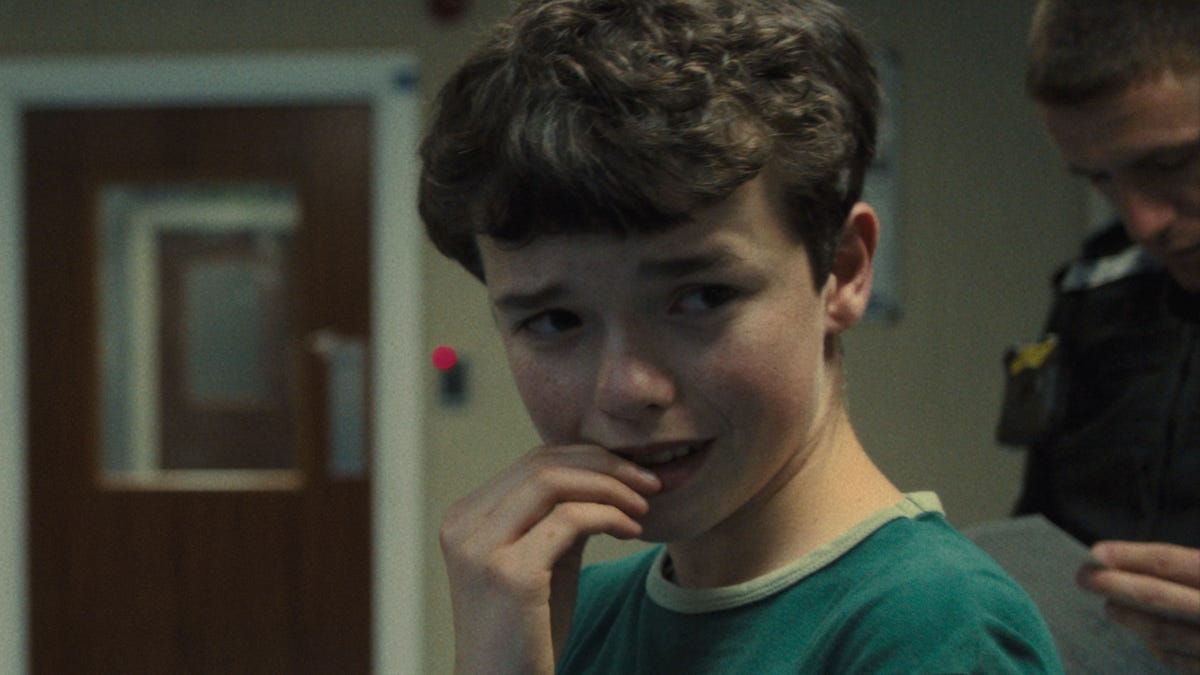Netflix series ‘Adolescence’ tries to serve as a warning, and the questions it raises are good. But the answers that it lands on are where the show veers off course.
What the emojis in Netflix’s ‘Adolescence’ mean
Since its release, Netflix’s ‘Adolescence’ has sparked widespread discussion, offering a chilling look at the impact of the internet and social media on children.
unbranded – Entertainment
As the mom of two boys, Netflix’s popular show “Adolescence,” about a 13-year-old accused of murder, made me mad.
I can see why the show is popular, garnering more than 66 million views in its first two weeks on the streaming site and a 99% score on Rotten Tomatoes. The story about Jamie, who is arrested in the stabbing death of a teenage girl from his school, is sinister and haunting.
The four-part series is beautifully shot, and the acting is superb − Owen Cooper who plays Jamie is extraordinary. The show taps into gut-wrenching issues: parents’ worst fears for their children and the online world’s allure and dangers for boys. But the real point isn’t about parenting, grief or even violence.
“Adolescence” promotes a political agenda, and the narrative is built around that. It’s a screed about toxic masculinity with a 13-year-old child at its center. Through vignettes about his home life with two flawed but loving parents, school friends and interviews with professionals about his behavior, “Adolescence” makes boys and men out to be problematic, susceptible to toxicity online and seemingly destined for violence.
The series tries to serve as a warning, and the questions it raises are good. But the answers that the series lands on are where it veers off course.
‘Adolescence’ and the misogyny of Andrew Tate
Jamie appears to have a loving family and stable home, but his school seems chaotic and disruptive. Teachers yell, and students start fights and bully one another.
We learn that Jamie has gotten caught up in “incel” culture. Incels are a subculture of misogynistic men who lurk online and blame their lack of romantic and sexual prowess on the women they hate.
One of the fictional detectives casually drops a reference to real-life celebrity Andrew Tate, a popular but toxic British American influencer who faces sexual misconduct charges in Britain and is under investigation in Romania. One of Tate’s ex-girlfriends recently made new allegations of abuse.
“Adolescence” provides a “look in the eye of male rage,” Jack Thorne, the show’s co-creator, told the BBC.
The series has already sparked a debate in Britain over smartphone bans. And Thorne has said that he wants a ban in the United Kingdom on social media use by children under the age of 16.
I’m no fan of obsessive smartphone or rampant social media use by teens and have railed against it myself. There’s a place for that debate, and policy changes could help parents and teens navigate a toxic online world.
But that’s not the main theme of the series − and that’s where I get frustrated.
What ‘Adolescence’ gets wrong
A headline for an Esquire article about the show says, “The crisis in masculinity isn’t scaremongering. It’s real and it’s dangerous.”
To a degree, I agree. Tate and his ilk are magnetic for some young men, and that isn’t good. I worry about the mental state of those young men who are angry and perpetually online. But let’s keep those concerns in perspective.
“Adolescence” ends with Jamie’s father, played by series co-creator Stephen Graham, weeping in his son’s bedroom. The message sems to be that even if you love and nurture your son, he’ll get caught up in a toxic internet subset, commit a crime and break the hearts of the people who raised him. It’s a message of hopelessness and fear − that boys are just one online click away from misogyny and violence.
As a mom of boys, I reject that depressing conclusion. Boys like Jamie do exist, but the data doesn’t support it as a widespread trend.
Men are more likely to commit violent crimes than women, but only a small percentage of men are guilty of violence. We should be cautious about passing sweeping laws, like social media and smartphone bans, based on the actions of a relative few.
As parents, we can do far more than restrict our sons’ use of phones and social media, although limits are a good idea. We also can appreciate and celebrate the incredible and unique differences between boys and girls, men and women. It’s good to feel good about being a male.
And we can be deeply engaged in our sons’ (and daughters’) education. I noticed how little Jamie’s chaotic school environment played a role in “Adolescence.” It was his foray into the online world that lured him to violence, but research shows that bullying in school can contribute to boys becoming violent.
The best antidote to toxic masculinity isn’t to ban incel culture or to show boys what’s wrong with men like Tate. We must offer an alternative − a picture of healthy masculinity for boys to emulate. Although I love being a mom, it’s healthy, good men who are best at teaching boys to become healthy, good men.
“Adolescence” is riveting and sad, but it demonizes boys, suggesting that their entrapment in the toxic online culture is inevitable. We shouldn’t accept the narrative that boys are destined for violence just because they are boys.
Nicole Russell is a columnist at USA TODAY and a mother of four who lives in Texas. Contact her at [email protected] and follow her on X, formerly Twitter: @russell_nm. Sign up for her weekly newsletter, The Right Track, here.

Leave a Reply